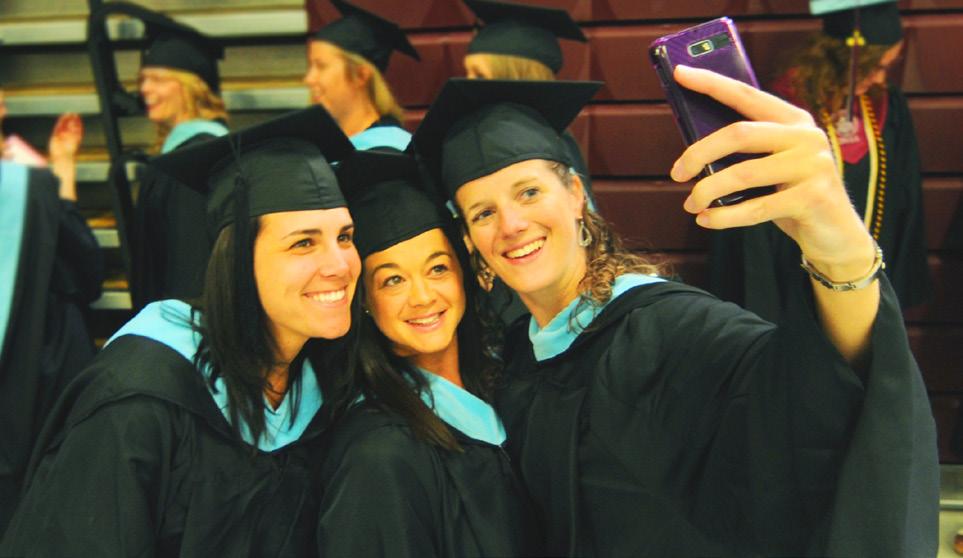










As an NEA member, did you know you receive $1,000 of term life insurance at no cost to you? You’re already enrolled in the NEA® Complimentary Life Insurance Plan, but it’s a good time to make sure you’ve selected a beneficiary.
When you do, you can have some peace of mind that your loved ones will receive their benefit in a time of need. This unique benefit helps ensure educators like you have additional coverage beyond what may be provided through your district. It’s just one of the many ways your union membership works hard for you.
or go to


10 Navigating today's 'infodemic' of news and information requires media literacy, critical thinking, and a healthy dose of skepticism.
Board of Directors
District A: Pamela Kinsey
District B: Steven Knowles
District C: Kendrah Fisher




12 How does your school create a welcoming environment for all students?
20 How students at Skowhegan Area High School are leading the charge to break down stigma surrounding mental health in their community.
24 Education support professionals (ESPs) across the state are organizing for a voice in their profession, demanding respect in the workplace, and advocating for appropriate staffing levels at their schools.
District D: Cedena McAvoy
District E: Thresa Mitchell
District F: Hilary Koch
District G: Valerie Pinkham
District H: Dennis Boyd
District I: Evelyn Atwood
District J: Suzanne Nelson
District K: Tom Walsh
District L: Rebecca Manchester
District M: William "Bill" True
District O: Michael Grillo
District P: Lisa Henderson
District R: Kay Grindall
District ESP: Jay Nicholson
Student: Zach Wentworth
Maine Educator (ISSN #1069-1235) is published by:
Maine Education Association
35 Community Drive, Augusta, ME 04330-8005 Phone: 207-622-5866 Fax: 207-888-2070
POSTMASTER: send address changes to:
Maine Educator
35 Community Drive, Augusta, Maine 04330-8005
Non-Profit US Postage paid at Augusta, Maine and additional mailing offices.
For advertising rates and information please contact:
Shawn Berry
35 Community Drive, Augusta, ME 04330 207-622-5866

Less than two minutes into the match and my heart sank to the deepest part of my stomach. My son, starting goalie for an undefeated team, let the ball slip between his legs. A play he made a thousand times in the regular season, but it was early November and the semi-final game. He made great play after great play, and the team eventually scored a lone goal in the waning minutes, but they were unable to overcome a 2-1 grinder. Our season was over. The fans on the other half of the field cheered in celebration, having overcome Goliath.
That same feeling returned a few nights later. By 11:00 PM, exit polls across swing states were trending in a direction different from what I had hoped. The results were clear Wednesday morning. Friends, family, and colleagues exhaled a potpourri of emotions from elation to despair. A long and divisive campaign season came to a decisive end, with more questions than answers.
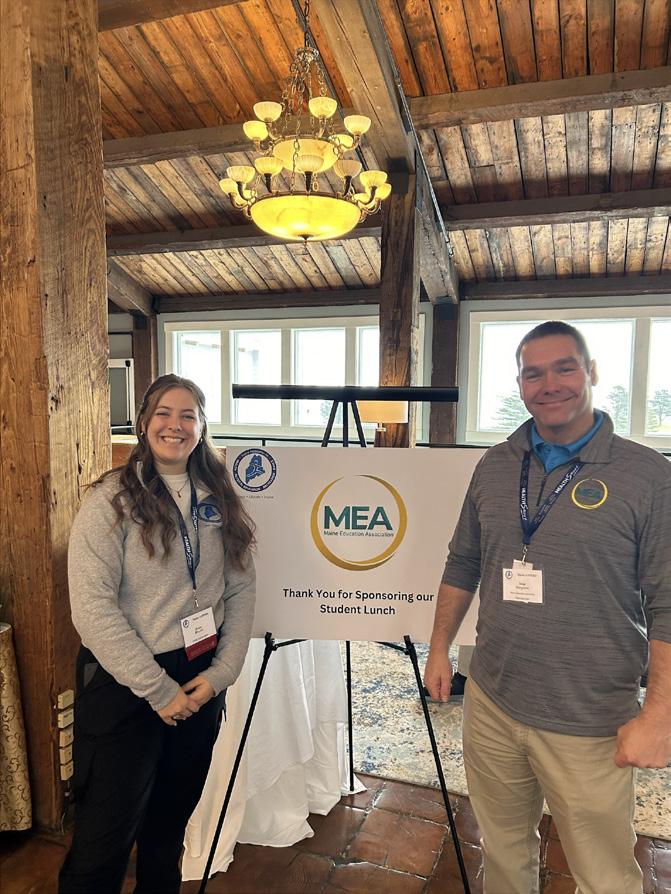
The show must go on however, and within days my family, and schools across the state, were busy with fall musicals. Ciara and her colleagues at Waterville put on a fantastic version of Mean Girls. There was a noticeable air in the auditorium as a cast of predominantly young women satirically unveiled how society pits women against women. I went to Hermon the following week to see Rock of Ages. It was great
to see my colleagues and students. The show was a poignant reminder of how important a sense of community is to our individual souls, regardless of differences. To finish the month, Ciara and I took our son (yes, the goalie) and his girlfriend to see Wicked on the big screen. It lived up to the hype – the music was incredible, the cast exceptional, and the theme...apropos.
I have always enjoyed arts and athletics and have come to enjoy even more watching my kids and students perform. We ask students daily to step outside their comfort zones, making it especially rewarding to see them excel in their interests or take on new challenges. I’ve also come to realize how these activities are an essential part of community building, not just for students, schools, and colleges, but for the parents, coaches, and townspeople. We may skip a select board meeting, but we will show up in face paint for a Friday night game or in costume for a matinee.
I am looking forward to clutch free throws, powerplay goals, the thunder of fans stomping their feet on bleachers, sideline battles between bands, and half-time acrobatics. I’m ready for the emotional rollercoaster of drama competitions and March Mammal Madness (shoutout to Hermon High School Science Department). These events bring us together despite differences.
This new year brings changes to state and national governance, presenting both challenges and opportunities. We must work together to strengthen our communities for all who live in Maine, and who attend or work in Maine schools and public systems. Regardless of political divides, Americans defended their public schools where it was on the ballot.
We can too. Like Ed Harris in Apollo 13, I believe that this can be our “finest hour.” The MEA team, alongside our NEA family, has been working to secure our union so that we can continue to advocate for students, schools, and the public education employees that strengthen our communities. We must organize around our shared community values in pursuit of a more perfect, more equitable, and more just society…and we will.


Those of you who are Facebook friends with me may know about my travel musings as I attend meetings on MEA’s behalf. I have the good fortune to serve as the MEA Executive Director and with that comes a fair amount of business travel to attend NEA/MEA events throughout our country. I often travel with our president and other MEA officers to learn and network with our counterparts from other state affiliates. This year has been no different and more important than ever. It is during these trips that I often take a minute or two to reflect on my surroundings and learnings over the trip, often with a bit of humor if I’m lucky.
In the spirit of those musings, the recent election, and the new year, I offer the following thoughts for consideration:
1) Elections Matter. I know you have heard this a million times, but pro-public education public officials have been instrumental in helping MEA get important legislation passed at the state and national levels. We raised the minimum wage for ESPs. We finally repealed GPO/WEP at the federal level so that public employees are no longer penalized for having worked in the both the private and public sectors. The MEA legislative priorities for 2025 will address educator shortages, education funding for both K-12 and higher education, and pension benefits, and allies will be essential to move these initiatives in the state legislature. School board allies are also key to our ability to influence school policies and working/learning conditions at the local level. Who we endorse and who we elect are the keys to making progress in these areas.
2) Leadership Matters. Your MEA Leadership Team is leaning in and thinking about how the association must evolve and grow to be sustainable and relevant to all MEA members and potential members. The team continually looks for opportunities to share and expand leadership roles. There are also great leaders who organize and guide the association at the local level, helping MEA build power and influence. I encourage you to think about getting more involved in your local association or MEA structures such as committees, board seats, NEA/MEA representative assemblies, and more. I know you are thinking that you cannot take on one more thing. I hear you. Believe me I do. However, especially now, we need your creativity and best thinking to move the union forward.
3) Public Education and Educators Matter. I have always believed that public education is the foundation of our democracy and pivotal to the health and growth of our nation. That has never changed. Public education gives all

students the chance to realize their potential and succeed. Each of you are rock stars for what you do for students and public education. Every. Single. Day. You go above and beyond to help students find their way and realize their potential. It is a calling that you have answered. MEA is here to support you. Please keep answering the calling.
4) Kindness Matters. No matter the level of disagreement or debate we may have with another person, how we engage those disagreements or debates says more about who we are than anything else. I am not saying we cannot or should not disagree with another person. I am saying we must remember that we are all human beings who are capable of being hurt and who are passionate about our beliefs. I have had to remind myself of this often in the last couple of months so not to burn bridges we might need later. Balancing one’s values and actions can be a bit tricky sometimes. There is more that connects than divides us.
5) MEA and Our Mission Matters. No matter who you voted for the President of the United States in this election, we are still one union with the same mission and values that we have always had. We will continue our work together to protect public education, our students and each other. No matter what lies ahead, we must stay the course and do what we do best. Lead and educate the future of this nation. How we react in this moment is crucial to our continued success and the future of our union. MEA is prepping for all possibilities and will be ready to address challenges that may present themselves over the next year and those following.
No one knows exactly what 2025 will bring, but I know that together we will meet each challenge with intentionality and strength.

I hope you all enjoyed a nice break with those who bring you happiness and joy. I spent a better part of my break curled up with this precious face (oh and Kevin too). Not a bad way to ring in the new year.
I wish each of you a very happy new year.
Rachelle
Rachelle Bristol Executive Director 207-622-5866
x 2227


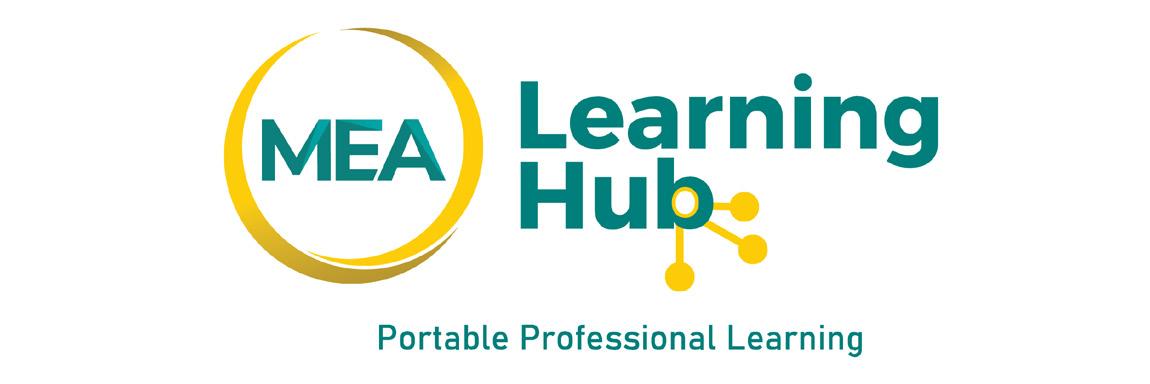
We are excited to announce that the MEA will be launching a series of Learning Hub courses designed to support Multilingual Learners (ML). Over the coming months, you can look forward to the following courses, each of which will be worth at least five contact hours that can be used toward state recertification:
• Supporting Multilingual Learners 101
• Assessing Multilingual Learners
• Culturally Relevant Pedagogy
• Advocating for Multilingual Learners
• Multilingual Learners and Standards-Based Instruction
• Multilingual Learner Family and Caregiver Engagement and Partnership
• Multilingual Learner Second Language Acquisition and Instructional Strategies
The first course to be released will be Supporting Multilingual Learners 101. In this edition of Cook’s Corner, we’ll preview some of the course content. We encourage you to visit the Learning Hub to enroll in one of our ML courses or explore our other offerings.
Multilingual learners (MLs) are students from diverse linguistic backgrounds who are acquiring proficiency in English alongside their native languages. These students bring a wealth of cultural and linguistic experiences to the classroom, enriching the educational environment.
Why is it Important to Support Multilingual Learners?
Understanding the unique needs of multilingual learners is crucial for educators. These students may face challenges in
Reach out to Mallory Cook mcook@maineea.org
communication, comprehension, and academic performance as they navigate learning a new language. However, they also possess remarkable cognitive abilities and resilience. By implementing inclusive and culturally responsive teaching strategies, educators can create an environment that fosters both language and academic skills, enabling ML to fully participate and excel in their educational journey.
More than 55% of teachers in the United States have at least one ML in their classroom. It is essential for all educators to understand the key roles that parent and community involvement, legal protections and policies, advocacy, and community organizing play in supporting these students in learning core academic content.
The landscape of laws and policies governing the identification, placement, and education of multilingual learners is critical for shaping equitable and inclusive educational experiences. Key legal provisions include:
• Equal Educational Opportunities Act (EEOA)
• Title VI of the Civil Rights Act of 1964
• Individuals with Disabilities Education Act (IDEA)
• Bilingual Education Act (BEA)
• Title III of the Every Student Succeeds Act (ESSA)
These laws mandate language access, prohibit discrimination based on linguistic background, and emphasize the importance of culturally responsive practices, comprehensive language assessment, and tailored educational plans.
In this course, learners will:
• Demonstrate awareness of the school and classroom climate necessary to support MLs.
• Understand socio-cultural considerations for creating an equitable educational environment for MLs.
• Identify relevant state and federal laws and regulations pertaining to MLs and their education.
• Describe ML cultural considerations and culturally and linguistically responsive teaching.
• Understand the uniqueness of different ML populations and the considerations for their teaching and learning.
To access the Learning Hub, scan the QR code or visit maineea. learnupon.com. For those new to the Hub, be sure to watch our demonstration video on how to set up an account.
Should you have any questions, please reach out!


Mallory Cook Director of Training & Early Educator Engagement mcook@maineea.org


This portal provides our members with FREE access to online courses anytime, anywhere!

Best Practices in Mentoring
Creating a Positive Learning Environment
Responding to Challenging Behaviors: Root Cause Analysis for Education Support Professionals
Responding to Challenging Behaviors: Root Cause Analysis for Teachers and Professional Staff
Supporting Multilingual Learners 101
Registration is easy and begin your learning journey ASAP
Did we mention it is FREE with your membership?


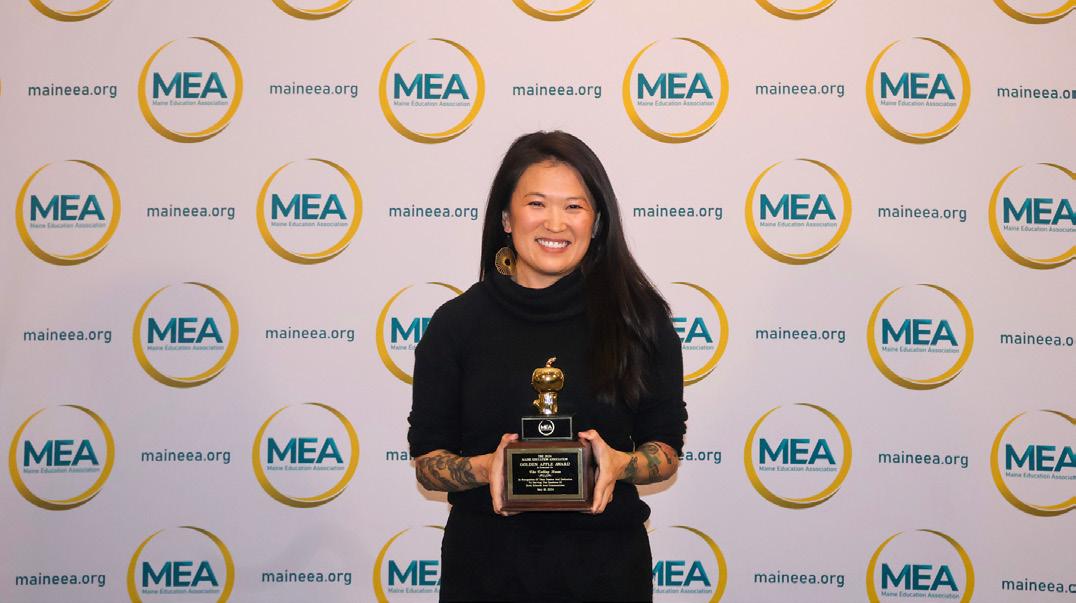

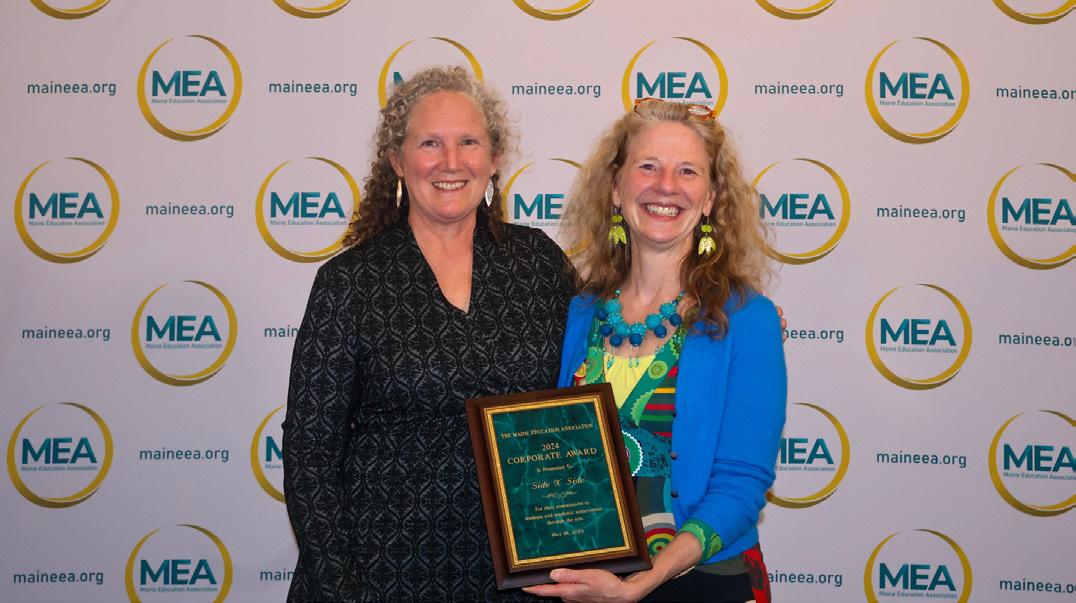

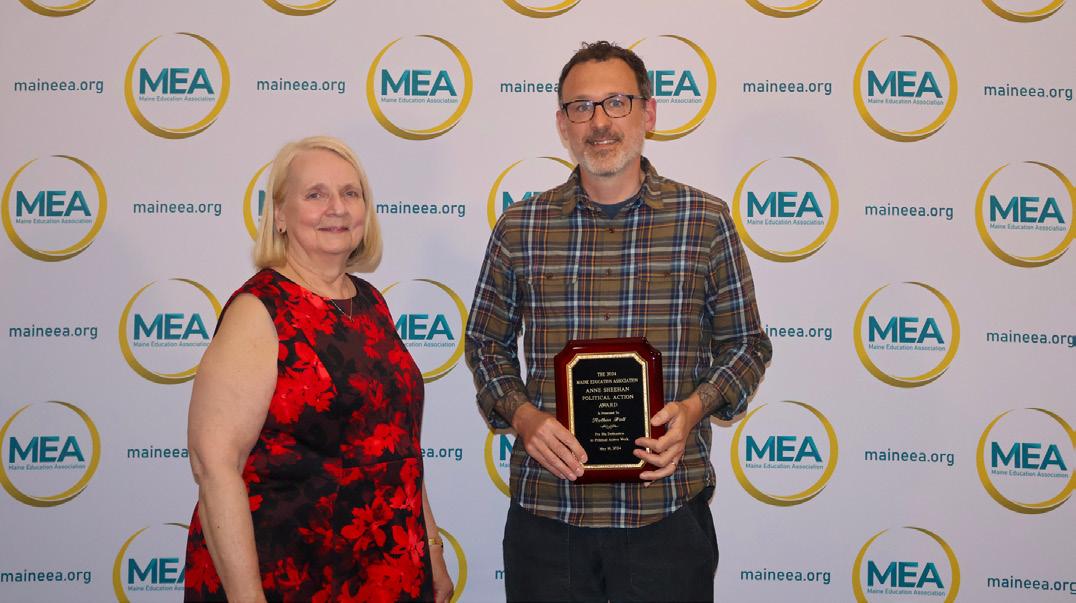
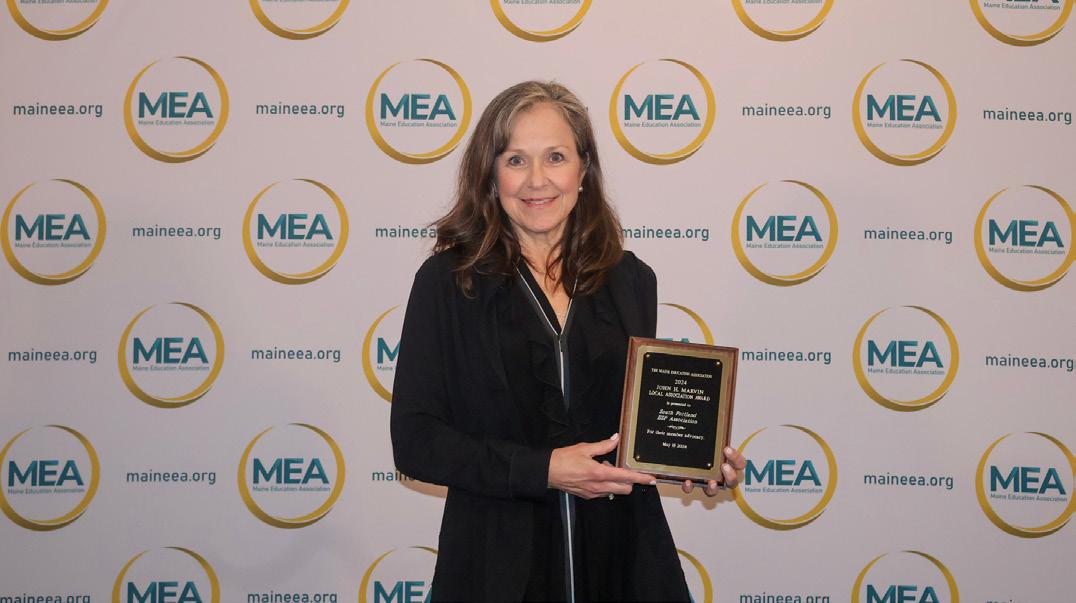
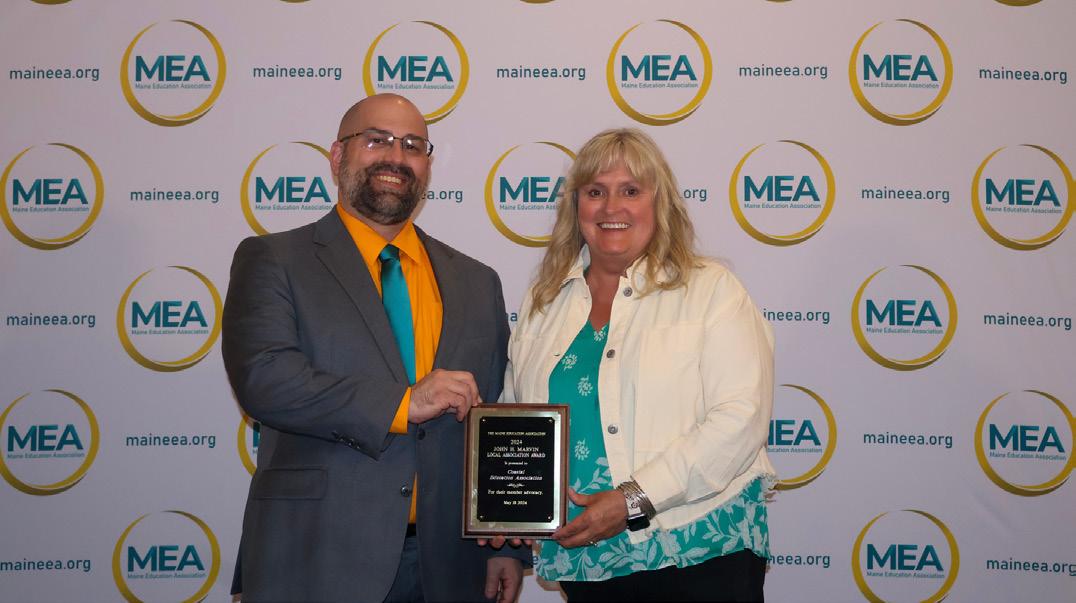

All award nominations are due by 5:00 p.m. on March 1, 2025
Featured Awards:
Anne Sheehan Political Action
Ashley Bryan Arts & Humanities
Award for Teaching Excellence
Corporate Award
Friend of Education
Golden Apple
Honor Medal
Human and Civil Rights
Joan McGovern ESP
John H. Marvin Local Association
Public Higher Education Impact

Educators are retiring or leaving the profession each year. Check out page 28 to learn how MEA is working to improve working conditions and address the educator shortage.
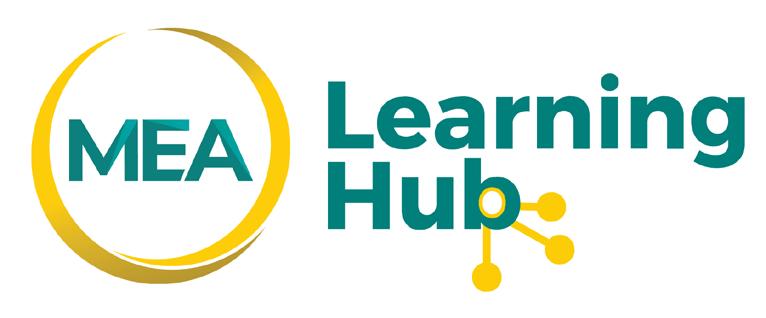
416
Maine residents live within 25 miles of one of Maine’s seven community college campuses! Learn more about the faculty who teach there on page 26.
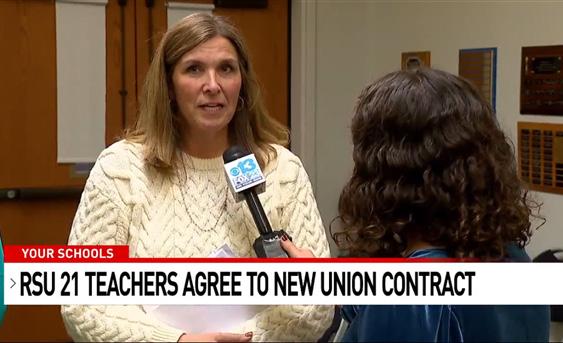
Members of KAKEA ratified their collective bargaining agreement in November after a year of negotiations.
“We had 93% of our members vote and it was almost overwhelmingly positive and we were able to ratify."
- Sheila Wells, KAKEA Secretary
MEA President Jesse Hargrove visited 29 schools and local associations since September.

“As a public school educator and the president of the Maine Education Association, I am inspired by my colleagues’ dedication to educating Maine’s future leaders. Their commitment to every Maine student’s success and contributions to our communities are worth celebrating every day. A strong public education system is essential for a stronger future for us all.”
-Jesse Hargrove, MEA President
52 Turkeys donated by members of the Gardiner Bus Drivers Association for the Gardiner High School National Honor Society Turkey Drive in November.



“It’s a great place to work. The people that leave because of pay, it's like, they're disappointed because they don't want to have to do that, they love working here, but they just got to make the choice that's right for them, for their family.”
- Warren Leunig, Auburn Education Association VP
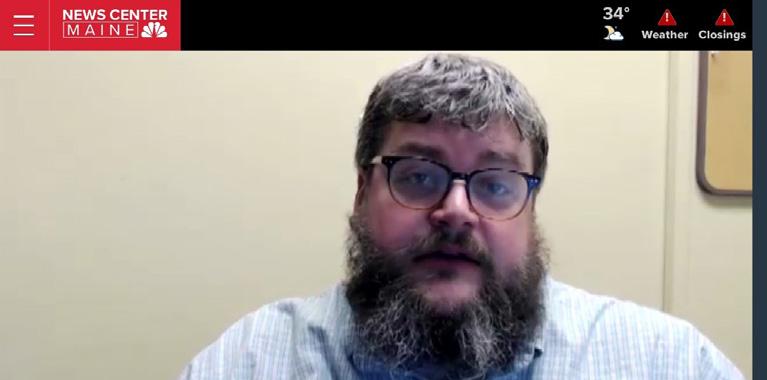
"Over 100 people have experienced food insecurity since 2021," Berger said. "Almost a quarter of our members have experienced housing insecurity, and four people were homeless within that same time frame... We feel that it's important for the taxpayers of Maine and other people to be aware of the situation at the university as a partially publicly funded school"
- Brian Berger, ACSUM President
By Cindy Long, NEA Senior Writer,

Navigating today's 'infodemic' of news and information requires media literacy, critical thinking, and a healthy dose of skepticism.
Immigrants eating pets, hurricanes intentionally created by “weather modification” systems, and election ballots sent to noncitizen voters to invite “foreign interference.” These are all examples of outrageous claims found online.
“There is nonstop misinformation from all sides, everywhere, 24/7,” says Eugene Kiely, executive director of FactCheck. org. “Misinformation used to be more cyclical and tied to elections, but there is no lull in misinformation now.”
But as social media evolves and the rise of artificial intelligence (AI) in generating misinformation increases, it can feel daunting.
To help students wade through the flood of information, Kiely suggests that educators ask them to fact check it just as they do at FactCheck.org, a nonpartisan, nonprofit “consumer advocate” that aims to reduce the level of deception and confusion in news, particularly politics and science.
As more young people turn to social media for news – Pew Research found 39 percent of adults under 30 get their news from TikTok – teaching them to check the source is key to helping them identify credible information.
Is it from a well-established organization? If not, better to check it. Do a Google search on the topic and see what comes up, Kiely advises.
“Do some digging,” he says. “If it's provocative and outrageous, what's known as ‘click bait,’ you should check the author or publisher.”
It is also important to learn about confirmation biases. If you tend to believe something about an issue or
Do some digging. If it's provacative and outrageous, what's known as 'click bait' you should check the author or publisher.
- Eugene Kiely, executive director
FactCheck
person, you tend to have more faith in information that backs up your belief.
For example, many people were angry about the disinformation about Haitian immigrants eating pets and the huge backlash the community of Springfield, Ohio, suffered as a result. That disinformation was spread by many, including vice presidential candidate J.D. Vance.
When information circulated about Vance renting a dog to make himself look pet friendly, many passed that on to their friends. But a thorough Google search would have shown that he actually has a German Shepherd named Atlas.
Google Fact Check Explorer is a tool educators and students can use to find debunked news reports. Simply type in the claim or rumor and see if it has been fact checked.
“Ignorance is not what we should be teaching our students,” Kiely says. “They need to be taught what happens when lies take hold – they need to understand the lessons about what happens when large groups of people believe disinformation, such as the storming of the Capitol on January 6, 2021.”
students is Rumor Guard, which dispels viral rumors with the facts. Was Disney World really flooded? Rumor Guard shows that a widely posted image of floodwaters surrounding the Cinderella Castle was AI-generated and that the claim is false. Was a KKK member at a Connecticut Trump rally? Rumor Guard shows that it was a social media troll wearing a costume.
Rumor Guard, a service of the News Literacy Project, provides recent fact checks, trending topics, factors to consider when looking at information, and how to take action against misinformation.
Brittney Smith manages school district partnerships for the News Literacy Project, which advances media literacy in K-12 education to ensure students graduate high school as well-informed, critical thinkers.
“Students are growing up in an ‘infodemic’ where they are presented with copious amounts of information,” Smith says.
But far too many students are not aware that some of the information they receive is false. That lack of news literacy, she warns, is a threat to our democracy. If students don't learn how to consume information responsibly and to think critically about it, they won't be equipped “to go out in the world and be empowered to engage in the civil life of our country and our democracy,” she says.
A popular program the organization offers educators is Newsroom to Classroom.
The program provides a directory of about 150 journalist volunteers who will meet with students in person or virtually, offering an opportunity for students to get news literacy instruction straight from the experts on dozens of topics, including misinformation, social media issues, the watchdog role of the press, the standards of quality journalism, and the First Amendment.
“Teachers find it helpful because it humanizes journalism and gives
students an opportunity to engage with real journalists and ask them questions,” Smith says. “The journalist can visit in person or Zoom into the classroom and participate in the learning experience however the educator feels is appropriate.”
While most of the News Literacy Project is geared towards students in fifth grade and up, they partnered with Time for Kids to create a unit for grades 3 to 6 called “News Mattters.” Each lesson builds foundational news literacy skills and provides opportunities for students to apply those skills through discussion prompts, collaborative group activities and independent work.
“It’s never too early to talk to kids about media literacy and disinformation,” Smith says.
In fact, a recent study from the University of California, Berkeley, found that exposing young students to disinformation in a carefully monitored way can help them build a healthy skepticism to information they find online.
“We need to give children experience flexing these skepticism muscles and using these critical thinking skills within this online context in order to set them up for their future, where they’re going to be in these contexts close to 24/7,” said Evan Orticio, a Ph.D. student in UC Berkeley’s Department of Psychology and lead author of the study.
“It's not that we need to enhance skepticism, per se. It's that we need to give them the ability to use that skepticism to their advantage,” Orticio said. “In our experiments, fact-checking was very simple. In real life, factchecking is actually very hard. We need to bridge that gap.”






Resources for helping students spot misinformation:
→Google Fact Check is a tool that helps users verify the accuracy of information by providing fact-checking articles from independent organizations directly in search results.
Learn more: toolbox.google.com/ factcheck/
→FactCheck.org is a nonpartisan non-profit that aims to reduce the level of disinformation and deception in U.S. politics.
Learn more: factcheck.org
→Rumor Guard is an initiative of the non-partisan News Literacy Project that helps people identify and debunk misinformation using a five-factor analysis and offers educational resources to improve news literacy.
Learn more: rumorguard.org/
→Checkology is a free e-learning platform with lesson plans to engage students in topics like media bias, misinformation, and help students gain literacy skills.
Learn more: get.checkology.org/
→The News Literacy Project is a nonpartisan nonprofit that equips educators, students, and the public with the skills to identify credible information and combat misinformation.
Learn more: newslit.org
“A good morning and a smile is a great way for all to start the day!”
-Tina F. (SAD 49 TA)
“Our Civil Rights Team celebrates the Day of Welcome and hosts movie nights to welcome students and families.”
-Tamra W. (RSU 71 EA)
“Our ambassador program is a powerful initiative that pairs new students with current ambassadors for strong, supportive transitions into our school community.”
-Holly G. (Orono EA)
“The guidance office is the 'welcome hub' of the high school. We have outfitted the space with a couch, comfy chairs and some beanbags for students to relax and have downtime individually or as a group.”
-Eileen H. (Cape Elizabeth EA)
“Our high school has several international students attending this year and with International Education Week this week, the international students are hosting a number of educational sessions to talk about their countries.”
-Kristin N. (Massabesic EA)
“We have a Jack and Jill cubby, which has jackets, hats, mittens, boots and extra clothing for students who may have forgotten or need these items.”
-Bonita C. (Northern Aroostook EA)
We promote responsive classrooms. We encourage the students from the time they get on buses and through the day to be respectful, responsible and safe.”
-Cindy P. (Winslow EA)
“South Bristol School isn't just a school for these kids, it's a home where they feel welcome. The staff goes above and beyond to make sure each student is greeted every day by a staff member.”
-Katie R. (Central Lincoln County ESP Association)
“Ourstaffgoabove-and-beyond to offer fun whole-school activities and celebrations that ofteninvolvecaregivers/family members like ‘Prime Time ReadingNight’or‘Grandparents' Day’.”-SarahR.(MtBlueRSDEA)
“Each morning staff are stationed at every entrance to the school. Students are greeted with a smile, by name, a positive comment, and a hug, if wanted.”
- Rachel H. (Glenburn EA)
“Every student and staff member gets to have a “Someday” wish granted at school.”
-Holly T. (Saco EA)
“Engaged students feel welcome at school because they know they are part of the work that's making a difference, both locally and globally.”
-Kristen B. (Mount Desert Island EA)


BY: MICHELLE MEADOWS
Before he became a writer, James “Jimmy” Baldwin was a young boy from Harlem, New York, who loved stories and found joy in the rhythm of music, family, and books.

BY: LESA CLINE-RANSOME
Eleven-year-old Lettie, her mother, Sylvia, and eighteenyear-old Philomena, who is on her way to her first teaching job, tell the story of their perilous covered-wagon journey to Nebraska in 1879.


BY: SHERRI L. SMITH AND ELIZABETH WEIN
The thrilling and inspiring true story of the desegregation of the skies led by a group of determined Black Americans who created a flying club and built their own airfield on Chicago's South Side in the years between World War I and World War II.





When students step onto the campus of one of Maine’s seven community colleges, they bring a diverse range of backgrounds and experiences. Some are still in high school, taking advantage of dual enrollment programs. Others are recent high school graduates benefiting from the free community college tuition program, and many are mid-career adults returning to school to further their job training or make a career transition.
Faculty at Maine’s community colleges face the unique challenge of teaching this diverse student body with varying goals, aspirations, and ages. They provide educational opportunities for thousands of Mainers each year.

Despite the essential role they play, community college faculty often face significant challenges. They must constantly adapt to the evolving demographics of their student body and the demands of Maine’s labor market.
Our jobs can look completely different depending on a number of factors: macro-economic conditions, political environment, enrollment numbers, and the demographics of our student body.
Mike Tardiff
English faculty member at kvcc

“Our jobs can look completely different depending on a number of factors: macro-economic conditions, political environment, enrollment numbers, and the demographics of our student body,” explains Mike Tardiff, an English faculty member at Kennebec Valley Community College (KVCC) in Fairfield, Maine.
Tardiff faces the unique tasks of teaching a diverse population of learners from various majors.. This adds the challenge of teaching students with a range of skills and differing interests. In one writing course, Tardiff may see students from a local high school combined with those enrolled in culinary, welding, electrical, and other programs—all who will use writing in different ways throughout their careers.

In early December, as Tardiff’s class was finalizing their writing projects, three students were absent due to a snow day at their high school. As a result, Tardiff had to quickly modify his lesson to ensure the absent students would not fall behind, while continuing to support those present. This is one of many situations that highlight how community college faculty must constantly adapt to the varying demands of their students.
Prior to 2022, Maine's community college system struggled with declining enrollment, leading to cuts in faculty positions. However, according to Dr. Shari Ward, President of the Community College Faculty Association (CCFA), positions have not been added since enrollment has surged in recent years.
This year, the system enrolled over 20,000 students across the state’s seven community colleges, with nearly half of the degreeseeking students benefiting from Maine’s free community college program instituted in 2022.
The system's flexibility is a key factor in its ability to address Maine's workforce challenges. It offers a wide range of programs, from two-year associate degrees and one-year certificates to short-term workforce training, early college programs, advanced certificates, and specialized skills training. However, this flexibility also requires faculty to adapt to diverse student populations with varied goals and experiences.
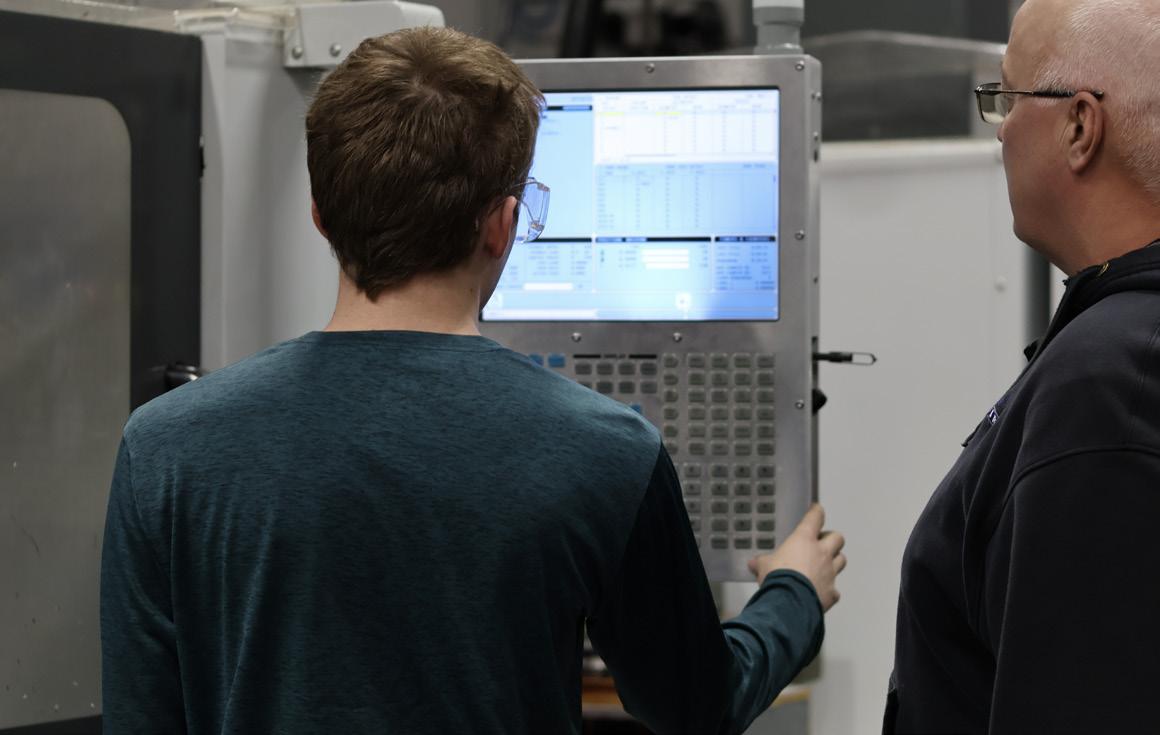

Everything is constantly evolving at the community college level. Our fields, curriculum, and student body are all changing, but tuition remains the same.
Jeff Godin
Precision machine instructor kvcc
Maine’s 354 community college faculty have been instrumental in navigating record-high enrollment while facing instructor and staff shortages. This has led to increased workloads and additional responsibilities. In some cases, faculty—who sometimes serve as departments of one—have been forced to teach several extra classes per semester because they are frequently unable to find qualified adjuncts.
While the community college landscape is constantly changing, one thing remains constant: the adaptability of its faculty and staff.
Jeff Godin, a longtime instructor in precision machining at KVCC, notes, “Everything is constantly evolving at the community college level. Our fields, curriculum, and student body are all changing, but tuition remains the same.”
Tardiff and Godin say it is not unusual to see a range of students’ ages in their courses, from high school students enrolled in dual and concurrent enrollment courses to mid-career adults looking to further their education.
Thousands of high school students earn college credit through dual-enrollment programs at Maine’s community colleges. “Our student body is economically and demographically diverse,” Tardiff explains. “We serve first- and second-year college students due to the increase in demand related to the free community college program. We also serve a large veteran population, and thousands of dual enrollment students each year.”
Continued on the next page
“The most rewarding thing is watching students accept their credential at commencement.
Because you know, for many of those folks, that degree or certificate is their ticket to life-changing earning potential and, as importantly, a more fulfilling life.
Mike Tardiff
English faculty member at kvcc
”Maine's recent free community college program has noticeably lowered the average age of students. The system reports that the average age is currently 24, with 71% of students under 24— compared to 54% in 2022.
According to Tardiff and Godin, while enrollment has increased, resources have not kept pace. Tardiff notes that he is much more likely to accept students above and beyond his course cap to meet the increased demand for courses.
While we look to Maine’s community colleges to train the next generation of workers and expand Maine’s skilled workforce to help address the challenges of being the oldest state in the nation, it is important to recognize that the community college system is not immune to workforce recruitment and retention challenges.
Faculty burnout is also a growing concern. Tardiff and Godin say the average faculty member stays for around 10 years, but when a faculty member leaves or retires, it is increasingly difficult to replace them. This is partly because it is difficult to recruit and retain staff, particularly from the technical fields. Godin notes that the system has been unable to replace a precision machining instructor at York County Community College for over a year, which in turn puts strain on the other precision machining programs, like his at KVCC. “It can be difficult to find instructors, especially for the trades,” says Godin, “which in turn makes it difficult to meet the demand for graduates in high-demand, high-skilled fields.”
Maine’s community college system is uniquely positioned to address the state's workforce challenges and increase access to higher education. With a diverse student body, faculty are constantly finding ways to adapt to meet the unique needs of each learner—ultimately empowering students to achieve their academic and career goals and helping to shape the economic future of Maine.
Despite the increasing demands, community college faculty continue to rise to the challenge, demonstrating a remarkable capacity for innovation and resilience. A prime example of this was their swift adaptability when forced to pivot to remote education during the COVID-19 pandemic. While this transition posed unique challenges, particularly for hands-on and experiential courses, faculty engaged with new
technology and explored creative teaching methods—ultimately expanding the possibilities for student learning.
By adapting to changing circumstances and embracing new technologies, faculty are helping to shape the future and expand access to higher education for thousands of Mainers.
“The most rewarding thing is watching students accept their credential at commencement,” Tardiff says, “because you know, for many of those folks, that degree or certificate is their ticket to life-changing earning potential and, as importantly, a more fulfilling life.”
→Student average age 24 years old. →94% of Mainers live within 25 miles of one of the seven Community College Campuses!
Building a
Our
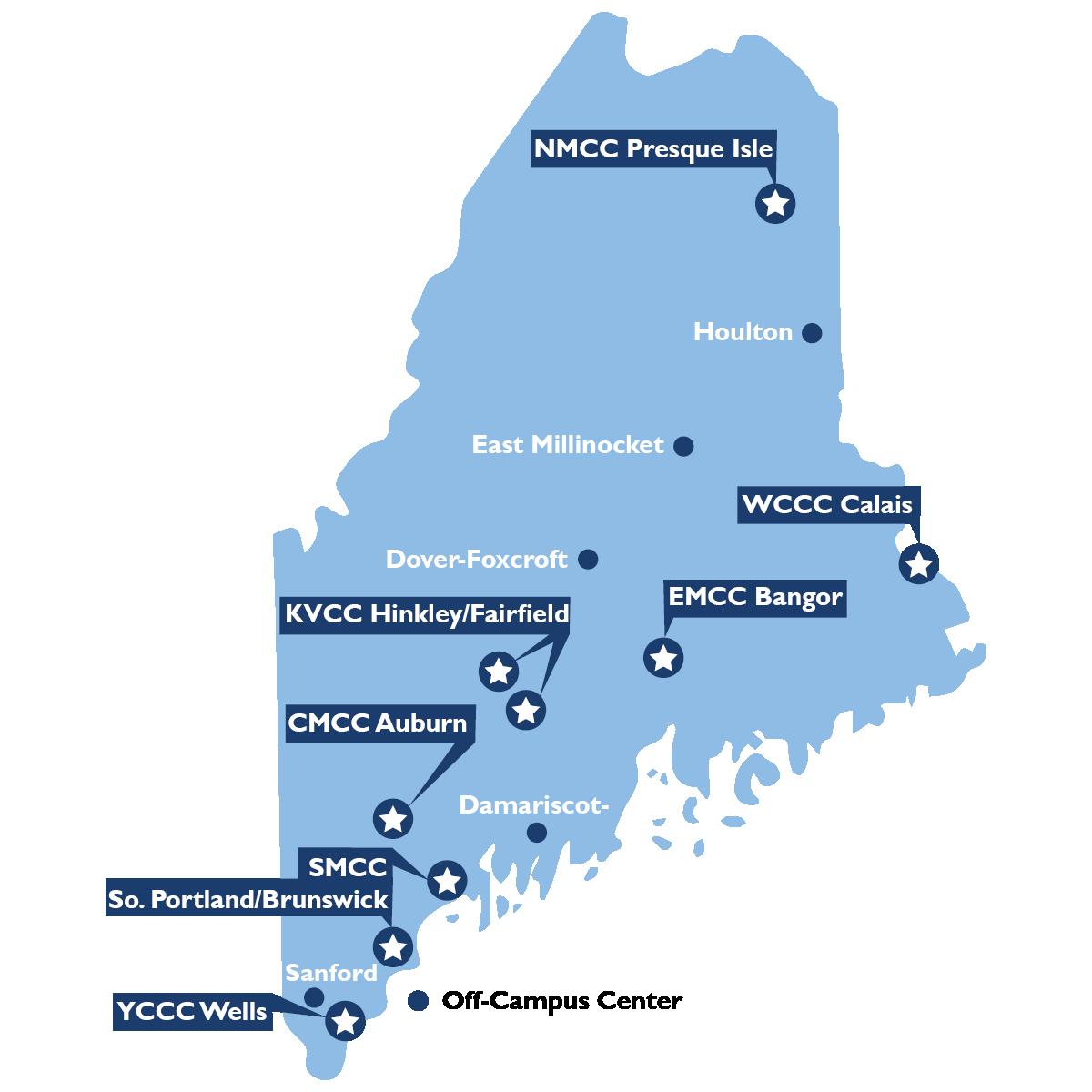
The seven community colleges and their off-campus centers are within 25 miles of 94% of Maine’s population.
Maine’s community colleges offer
• In addition expanded our programs. Get low- or no-cost weeks or months.
• Since 2022, short-term train another
• Our most popular business, and programs in commercial CNC machine installation, technician, Yamaha and welding.
• Short-term Harold Alfond Maine’s Workforce, on-campus, across the
• Some programs housing options!

Maine’s community colleges offer Free College High school Free College and mandatory has been applied. scholarship qualifying years.
The Free College male students
A total of 17,151 enrolled, many never afford
91% of Free pursuing associate



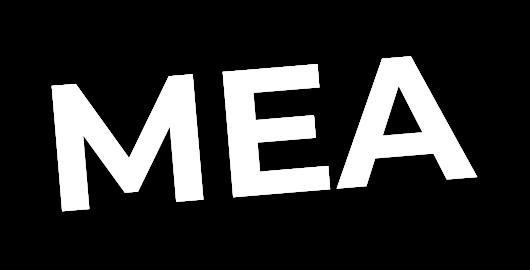
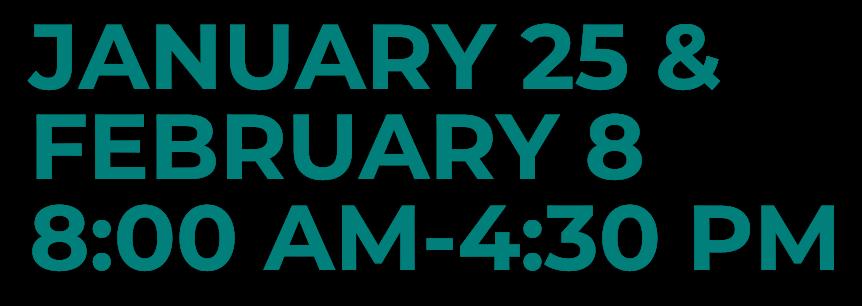
C o m e L e a r n w i t h U s !
M E A ' s T o g e t h e r a s O n e W i n t e r C o n f e r e n c e

o f f e r s t h e p e r f e c t F R E E o p p o r t u n i t y f o r m e m b e r s
t o c o n n e c t w i t h u n i o n c o l l e a g u e s f r o m a c r o s s t h e
s t a t e a n d e n h a n c e t h e i r s k i l l s a s e d u c a t o r s ,
l e a d e r s , a n d c h a n g e - m a k e r s . N E W T H I S Y E A R ,
t w o d a t e s & t w o l o c a t i o n s !
J a n u a r y 2 5 : P r e s q u e I s l e
F e b r u a r y 8 : B a n g o r
T a k e a d v a n t a g e o f t h i s v a l u a b l e o p p o r t u n i t y
t o l e a r n , g r o w , a n d c o n n e c t w i t h y o u r u n i o n c o l l e a gu e s .
P a r t i c i p a n t s c a n e a r n u p t o 7 c o n t a c t h o u r s f o r a t t e n d i n g .
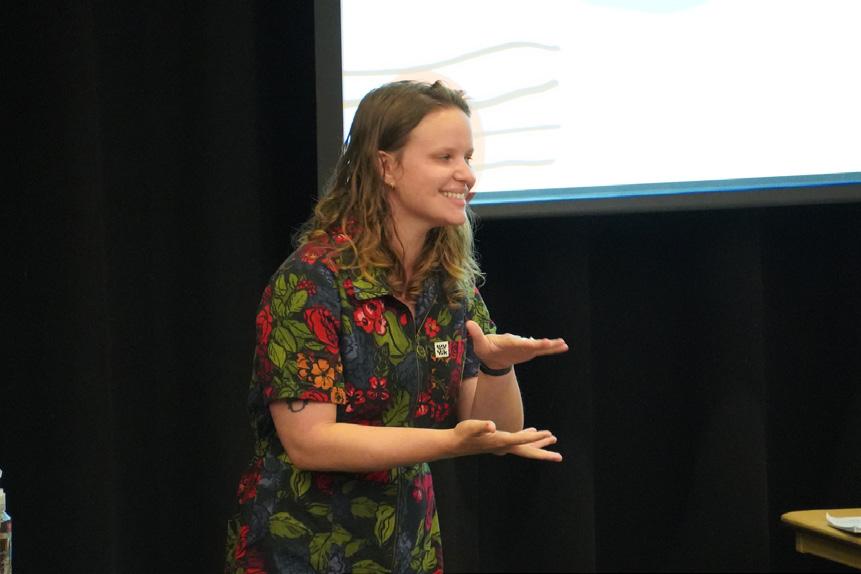
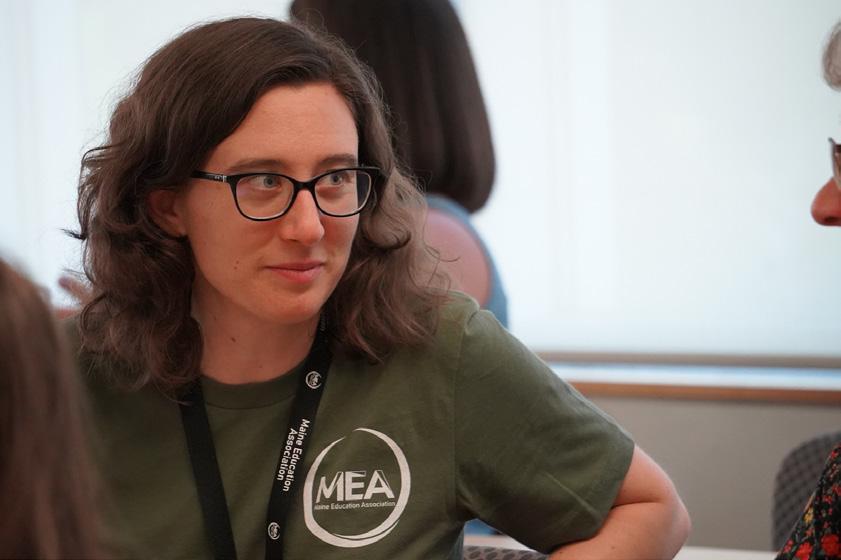
JANUARY 25
University of Maine Presque Isle 181 Main St. Presque Isle, ME 04769
FEBRUARY 8
United Technologies Center 200 Hogan Rd Bangor, ME 04401

How students at Skowhegan Area High School are leading the charge to break down stigma surrounding mental health in their community.
When a group of three students approached Kaley Brown, teacher at Skowhegan Area High School, three years ago, seeking a space to discuss their mental health, little did they know they were sparking a community-wide movement. The group, Your Mind Matters, which started as a small gathering of peers supporting one another, has evolved into a dynamic, studentled initiative, dedicated to breaking down the stigma surrounding mental health at Skowhegan Area High School.

about their mental health struggles,” Brown explained. “It has since morphed into a powerful force for change and awareness.”
This group has become an opportunity for students to discuss mental health concerns and share positive messages with the school and community. Your Mind Matters collaborates with other Skowhegan Area High School and community groups to create murals, host drives, invite speakers, organize familyfriendly activities, and spread awareness about important mental health themes throughout the year.
At its core, Your Mind Matters, Brown emphasized, is studentled, which is part of what makes it so special. "It's important to me that the students lead the group because students are more likely to listen to and connect with their peers."
The group—which has grown to around six members—meets weekly in Brown’s classroom to focus on raising awareness of mental health and some of the perceived barriers people face when addressing their mental health.
It started as a safe space for students to talk peer-topeer about their mental health struggles. It has since morphed into a powerful force for change and awareness.
Kaley Brown Skowhegan Area High School Teacher
“It started as a safe space for students to talk peer-to-peer
“We want to break down the stigma and raise awareness of different mental health issues,” one student shared. “We want to create a supportive environment to talk about mental health, so that our peers know they are not alone.”
“Mental health struggles impact everyone,” one of Brown’s students said. “It is important to me because it has impacted me, and it is disheartening to hear people make assumptions. This group works to advocate for others, because we are all impacted.”
The Your Mind Matters students are highlighting an issue that national and statewide statistics support. According to NAMI Maine, 1 in 6 school-age youth in the United States experience a mental health disorder each year, and 14,000 Mainers age 12–17 have depression.
1 in 6 | 14,000
School-age youth in the us experience a mental health disorder each year, and 14,000 Mainers age 12-17 have depression
Other students chose to get involved with the group because they have seen their own family members struggle and not receive the help they needed—in part because of stigma and in part because mental health providers can be difficult to access in rural areas like Somerset County, where students from Skowhegan Area High School live.
“My family suffered from mental health challenges and didn’t get the help that they needed, so it hits close to home for me,” one student said. “Since members of my family weren’t able to get the help, I am hoping other people will.”
According to this year’s Maine Shared Community Health Needs Assessment, access to care is a challenge in Somerset County. The ratio of population to psychiatrists in Somerset County is nearly 200,000 to 1. This problem persists across the state. According to NAMI Maine, 260,862 people in Maine live in a community that does not have enough mental health professionals to satisfy the need.

Each month, students in Your Mind Matters select a mental health topic to raise awareness about. They've organized various initiatives, from suicide prevention campaigns to food drives, and have even partnered with local organizations to raise funds for mental health services—expanding their reach beyond the school walls.
In November, students worked to raise money for the district’s backpack program, which is administered through the food pantry located at the high school. "We chose to support the backpack program because we know that food insecurity can significantly impact mental health," explained a Your Mind Matters member. "By addressing these underlying issues, we can create a healthier and happier school community."
In the past, the group also organized a suicide awareness campaign—placing posters throughout the school and planting a garden of tulips as part of the Yellow Tulip Project. They have also hosted speakers, organized workshops, distributed stickers on Valentine’s Day, and circulated pamphlets to helplines and resources.
The group has gained community recognition. Last year, they were chosen as beneficiaries of a 5K hosted by local business
Holland Variety Drug. This event raised over $1,000, which Your Mind Matters used to support their November fundraiser. Additionally, the group was honored by Somerset Public Health with a New Balance Move More Kids Award.
As Your Mind Matters continues to grow as a group, they have ambitious goals for the future. "We want to collaborate with other schools in our district and inspire them to start similar initiatives," one student said. "We also want to focus on specific mental health issues like eating disorders, which can be particularly challenging for young people."
In February, they say they plan to focus on an eating disorder campaign—something that has directly impacted a few members. “We want to talk and raise awareness for others, so that students know that they are not alone,” one group member explained.
They also would love to recruit more diversity to their group. “I think if we had at least one person who was a male student, more male students would be encouraged to join, it would really help.”
By empowering students to take ownership of their mental health, Your Mind Matters is making a significant difference in the lives of countless young people. Through these efforts, these students aim to foster a community of positivity and kindness, smashing the stigma associated with mental health struggles in their community.

RESOURCES TO HELP YOUR STUDENTS AND COMMUNITY
→Youth Mental Health First Aid:
Designed for adults that work with youth ages 12-18. This training provides information on common mental health challenges in youth, skills for holding supportive conversations and connecting youth to appropriate professional care, and local and national resources for additional support.
→Teen Mental Health First Aid:
Teen Mental Health First Aid teaches high school students how to identify, understand, and respond to signs of mental health or substance use challenges among their friends and peers. The training helps students develop the skills to have supportive conversations with their friends and then connect with a trusted adult.
→Find NAMI programming and upcoming training: namimaine.org/youth-ed-resources/
→NAMI Maine’s Teen Text Support Line: Text (207)525-8398 or visit namimaine.org/teentextline
Ensuring High Quality Education for All by Attracting and Retaining Educators, Enhancing School Funding, and Supporting Higher Education
MEA supports bills to recruit and retain educators to make the profession more attractive, emphasizing improving workplace conditions, fair pay, and professional development as key strategies to elevate the profession.
MEA’s Legislative Agenda prioritizes students and confronts the challenges that educators currently face. MEA members have identified that staffing shortages are a serious concern among educators across the state.
Maine teachers earn 23% less than other college-educated professionals with similar experience and ranks #37 in the US and last in New England for starting teacher salaries. TTo attract and retain qualified educators, MEA supports proposals to raise the starting teacher salary to at least $50K to boost salaries for Maine’s teachers up and down the scale, help address the educator shortage, and recruit and retain highly qualified educators to the profession.
Last year, nearly 500 teachers chose to leave the profession— nearly double the numbers from 2015-2018. MEA supports proposals that focus on retaining early career educators by strengthening mentoring requirements for teachers in their first two years and providing mentor teachers with a robust annual stipend.
In the past decade, the number of people completing educator preparatory programs in Maine has dropped 50%, far exceeding the national decline. Some aspiring educators are forced to forgo student teaching because they are unable to take on the financial burden of paying tuition and living expenses while working in the school full-time. To reduce the financial burden of student teaching and attract more preservice teachers, MEA supports legislation to compensate student teachers while they are working in our schools and additional support for cooperating teachers.
Maine students and educators deserve to feel safe at school, yet time and again members cite challenging behaviors as a top issue they face in their schools because of lack of training, staffing shortages, and lack of resources to meet students’ complex needs.

MEA supports enhanced professional development training opportunities for all educators and school staff focused on de-escalation techniques and positive behavior interventions to help educators meet the complex needs of Maine’s students.
Community schools empower students, educators, and families to thrive in their communities by integrating essential services like food pantries, mental health counseling, and health care. MEA supports integrating elements of the community school model across the state to expand the key services students need to thrive and succeed academically and personally. Maine should focus on the expansion of services in areas with the greatest need and target services to match the unique needs of student populations.
Student mental health continues to be a top concern for MEA members, which highlights the urgent need for comprehensive mental health support in our schools. MEA supports proposals to increase the presence of mental health professionals— school psychologists, counselors, and social workers—and comprehensive school counseling and student services in our schools.
Our Education Support Professionals (ESPs) deserve job-specific training that complements the essential and important support they give to our students. MEA supports proposals that require districts to provide paid professional development for ALL hourly school employees, covering essential skills such as school roles, safety procedures, and the implementation of IEPs.
To address the educator shortage, Maine must invest in fair pay— from day one through retirement. Educator pension plans are a tool for employers to attract skilled workers and get them to stay in the profession. MEA supports the enhancement of retirement benefits that recognize and reward educators’ hard work on behalf of students, including an increase of the state’s share of retired teacher healthcare, strengthening the pension system (MEPERS), and raising the Cost-of-Living Adjustment (COLA).
Maine students and educators need reliable, ongoing, equitable funding for all school districts.
Maine students and educators deserve to attend schools that are safe and healthy, but too often school buildings are unsafe. Maine must find a way to provide stable funding for the capital needs of our school buildings, which is why MEA is in favor of removing the debt service from the school funding formula (EPS) and finding alternative ways to augment state support for our schools’ critical capital needs.
Property tax sensitivity has made it increasingly difficult for school districts to pass school budgets and left too many districts without the resources they need to provide for students. MEA is in favor of an increase in Maine’s Homestead Exemption and Property Tax Fairness Credit to help reduce pressure on school budgets and property taxpayers.
MEA will engage with the school funding study (EPS) currently underway by the Maine Education Policy Research Institute to advocate for equitable distribution of state funding for schools and continue to advocate for maintaining 55% state funding for public schools.

MEA supports an increase of the state appropriation to the University of Maine system to provide critical funding to our state's public, four-year university system. Our entire state benefits, economically and socially, from a public higher education system that is affordable, robust, and comprehensive. MEA members in the UMaine System are ready to lead an effort to increase the state appropriation for the UMaine System to at least keep pace with inflation.
We are equally committed to making sure these resources go closest to the students and are not swallowed up by administration or central office. Additionally, we want to make sure all employees in the UMaine System earn a living wage and can meet basic needs with their full-time earnings, without relying on state-funded services.

Join our Legislative Organizing Committee to keep up to date with the latest happenings regarding education in Washington and the State House. To join this new Legislative Committee, email Jan Kosinski (jkosinski@maineea.org) for more information.
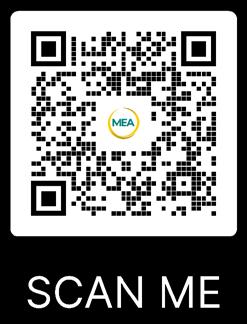









Education support professionals (ESPs) across the state are organizing for a voice in their profession, demanding respect in the workplace, and advocating for appropriate staffing levels at their schools. Some ESP bargaining units spent the fall organizing to finalize their contracts, which in some cases, expired last year.
Through their efforts, they have successfully negotiated contracts that address key issues such as salaries, workplace conditions, benefits, and opportunities for professional growth. These gains not only improve the lives of the support staff but enhance the overall educational environment for students and teachers alike.
When James Spencer, an education technician in RSU 63, felt that he and his colleagues deserved more job security, he approached other ESPs in his district about starting a union.
“Last year I realized how much power the school board had, so I approached our UniServ Director, Anthony Feldpausch, about unionizing,” Spencer said. “I realized as an at-will employee, I couldn’t advocate for the better learning and working conditions that my students and colleagues deserve without the threat of losing my job.”
Eighty percent of education technicians at RSU 63 supported
unionization. As a result, contract negotiations began last October. Their primary goal as a newly formed bargaining unit was to amplify their voices, gain respect from district administration, and increase job security.
Throughout the year-long bargaining process, key issues included adding just cause language to their contract, additional compensation for increased job responsibilities, health insurance premiums, retroactive pay for the 2024 school year, professional development, and wages.
Their hard work and persistence paid off. Their first contract—ratified in December—includes a 23.5% wage increase, just cause for dismissal and discipline, insurance benefits matching the teachers' collective bargaining agreement, reimbursement for personal items broken on duty, and retroactive wages for the fall.
Perhaps the most notable aspect of the contract is the "Grow Your Own" program, which provides professional development funds for those seeking teacher certification. Through this program, the district identifies shortage areas and invests in employees looking to gain their teaching certification to fill the need.
“In the past year there had not been any professional development opportunities for ed techs in the district; it was important to us that ed techs have access to professional development opportunities to grow in the profession as well,” Spencer said.
I learned that our collective bargaining agreement holds the school board and administration accountable. It gives us protection to speak up when something isn’t being done properly in school, and advocate for our students.
James Spencer Ed Tech, RSU 63
Already enrolled in graduate classes for the spring semester, Spencer is among the bargaining unit members who will benefit from the “Grow Your Own” program. “I am excited about this,” Spencer said. “It gives ed techs the opportunity to have the district invest in their career, while helping the district fill high need areas like special education.”
RSU 63 TA Treasurer Helen Allen-Welden, a member of the teachers’ bargaining unit, supported the ESPs during their first collective bargaining negotiation. She says the process helped her grow as a union leader and recommends others get involved.
“Supporting the ESP contract was a rewarding process,” she said. “It taught me a lot about bargaining and allowed me to develop relationships with the school board and within the district. I would 100% recommend other members run and represent their bargaining units. It is a time commitment but eye-opening,” Allen-Welden said.
Why is a seat at the table such a big deal? Bargaining ensures educators have a voice, and that voice can make a significant difference. As Allen-Welden puts it, "This will help our ESPs feel more valued and secure—that's my hope. It should help us recruit more staff and invest in the amazing ESPs we have."
For Spencer, collective bargaining has empowered him to advocate for both his colleagues and his students. “I learned that our collective bargaining agreement holds the school board and administration accountable,” he says. “It gives us protection to speak up when something isn’t being done properly in school, and advocate for our students.”


RSU 18 EA’s education support staff—including custodians, education technicians, and nutrition professionals—began this school year with an expired contract. The primary issues that united members during the contract negotiations, which settled in October, were the need to feel respected in their profession and to maintain their current workday schedule.
When the administration suggested eliminating a paid lunch period to cover the cost of proposed wage increases—in some cases reducing the number of paid hours ESPs could work— members of the bargaining unit, staff, and community came together to show their support and respect for the district’s ESPs.
RSU 18 EA organized dozens of members to attend an October school board meeting, delivering a unified message: ESPs deserve to be treated with respect and should be compensated fairly for the crucial role they play in our school communities.
"These dedicated professionals play crucial roles both inside and outside the classroom and deserve to be respected and recognized for their contributions," said Ninette Fenlason, RSU 18 EA President at the October meeting.

When negotiations stalled this fall, 65 members of the Auburn Education Association (Auburn EA) packed a school board meeting dressed in red to show solidarity with the education technicians and secretaries in their bargaining unit. Their goal? To call on the school board to resume negotiations for a contract that expired on August 31st.
Throughout the fall, nearly 100 education technicians and secretaries in the bargaining unit organized around stagnant wages, limited health insurance coverage, and the frequent use of education technicians as substitute teachers.
These dedicated professionals play crucial roles both inside and outside the classroom and deserve to be respected and recognized for their contributions.
The district's initial proposal did not account for inflation, which the Auburn EA said made it difficult to attract and retain employees.
According to Warren Leunig, co-vice president of the Auburn EA, members of the bargaining unit make so little that they qualify for MaineCare and Supplemental Nutrition Assistance Program (SNAP) benefits.
After mediation in early November, the unit successfully secured a contract that includes significant wage increases and improved insurance coverage. The new contract also introduces bereavement leave and paid holidays, making substantial progress for the bargaining unit. However, dependent health care remains an out-of-pocket expense or a MaineCare option, highlighting ongoing challenges. Despite this, Leunig says he views these gains as crucial momentum for future negotiations.
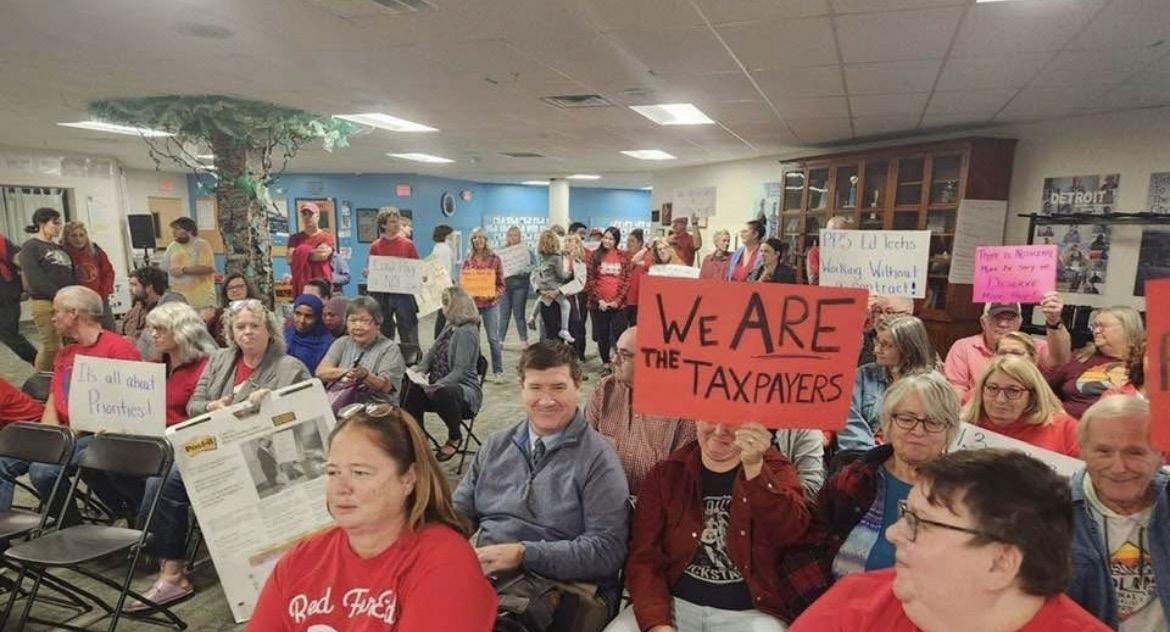
Jen Cooper’s teenage son was offered a summer job paying $20 per hour, a wage higher than some education technicians in Portland earned at the start of the school year.
Portland EA members gathered at a school board meeting this fall to testify that starting wages in the previous contract—which expired on August 31st—were not livable, leading to shortages in schools. “Starting this school year without a contract was disheartening,” said Portland EA ESP President Jen Cooper. “Our last contract was a year and a half overdue, which was difficult for morale.”
The Portland EA ESP bargaining unit represents 220 education technicians working in Maine’s largest school district. Cooper said the district was eager to raise wages, but only at the bottom of the wage scale, with the goal of attracting new educators to the district. However, Cooper and Portland EA members felt it was equally important to raise wages across all steps of the pay scale.
on retaining the amazing educators that we have in our district,” Cooper said.
Ultimately, Portland EA reached an agreement with the school board that increased the wages for education technicians by 12% while maintaining fully funded benefits. In addition, members gained an increase in substitute pay and ensured that staff are paid a full day’s wages on late start and early release days.
“As hourly employees, there was a week last year where staff lost a day of pay because of early releases and late arrivals attributed to weather. So being paid for a full day when school is released early is going to make a big difference for our ESPs,” Cooper said.
Portland EA—under the leadership of President Kerrie Dowdy and Cooper—has worked to bring both bargaining units together in support and solidarity. “The key point to our success,” Cooper explained, “was that the teachers and ed techs have truly come together as partners, which has had a positive impact on our bargaining success.”
“Together we can do so much more,” Cooper said. “If you have people in your building that aren’t members, talk about the benefits of joining the union because when you need them, there is strength in numbers, and belonging to the union is worth every penny.”
1. Together we have a stronger voice!
Joining adds your voice to thousands of educators just like us across the state and millions of educators across the country to accomplish things one educator, one bus driver, one janitor, or even one district can’t do alone.
As a union, we regularly meet with school administrators, school boards, and lawmakers from both major political parties to advocate for higher wages, better benefits, and improved working conditions for educators.
Together we can do so much more. If you have people in your building that aren’t members, talk about the benefits of joining the union because when you need them, there is strength in numbers, and belonging to the union is worth every penny.”
Jen Cooper ESP President, Portland EA
“We wanted to not only attract new staff but also focus
2. Together for our students!
Great educators create great public schools. Your union is here to help you get the training, tools, and community support you need to engage students, advance education justice, and excel in your profession.
3. Together for change!
When we speak up as part of our local union, we can advocate for significant changes like increased salaries or cost-of-living adjustments. Additionally, we have already secured improved health care benefits, comprehensive student loan forgiveness and repayment programs, and discounts on school-related items—things that improve our daily lives as educators.

Caribou Community School's innovative book vending machine motivates students to read and increases access to books, fostering lifelong readers in the community.
When Caribou Community School opened its doors in the fall of 2021, there was a new vending machine. Instead of vending snacks or drinks, it dispenses free books which students choose by using special coins that they earn from teachers and staff.
In today’s world, it seems harder than ever to encourage a love for reading among students, but at Caribou Community School, the book vending machine provides a unique strategy for adding a little excitement into reading while putting new book titles in the hands of their learners.
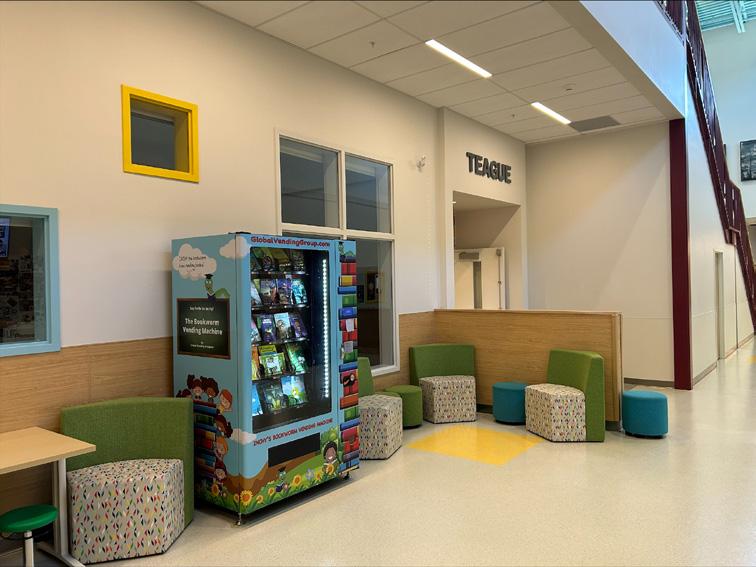
April Belyea, President of Eastern Aroostook Education Association, describes the book vending machine as a blessing. “It has been a great way to motivate students to read and engage in school.” April teaches second grade at Caribou Community School which serves students grades pre-kindergarten through eighth grade.
This helps put books in the hands of kids who might not have the same access to ordering books in other ways— like book orders or book fairs.
-April Belyea President, Eastern Aroostook EA
A growing trend in schools, book vending machines are used as a reward incentive for students who demonstrate good behavior. Instead of entering money into the machine, students earn coins from educators at school that they can exchange for books.
“Our school administrator had seen a book vending machine at another Maine school,” Belyea says. “When we were building our new school, we knew this would be a great addition to our school
Students in Belyea’s class earn coins by working on their reading goals at home, but coins can also be given out by other educators at the school for students who go above and beyond as a school citizen.
Belyea says the book vending machine— which was funded by a private benefactor—has been a great way to incentivize and create excitement around reading, and perhaps more importantly, increase access to books.
“This helps put books in the hands of kids who might not have the same access to ordering books in other ways—like book orders or book fairs,” Belyea says.
Once a student earns a coin, they can select a brand-new book directly from the machine. The school’s library media specialist manages the vending machine. She stocks the books with titles that are popular with students, and in a variety of levels for the pre-kindergarten through grade eight students at Caribou.
“Our library media specialist is an essential part of the project because she knows what kids are reading,” Belyea says. “It is important to have someone choosing the books that will be desirable to our students.”
When the book supply is low, the library media specialist restocks the vending machine with new books utilizing funds donated by the private benefactor. This ensures that students can continue to foster an excitement for reading throughout the school year.
Caribou Community School’s book vending machine is more than a tool for handing out free books and rewarding positive behavior in the school community, it is an effort to encourage kids to become life-long learners.
“Having this book vending machine has been a great addition to our school community;” Belyea says. “Seeing the excitement of our students when they get to pick out a book to bring home, and the confidence that they are gaining as readers, has been the greatest reward.”

During the final hours of the 118th Congress, the U.S. Senate voted 76 to 20 to pass the Social Security Fairness Act—historic legislation that ends the Government Pension Offset and Windfall Elimination Provision (GPO/ WEP). These punitive and discriminatory penalties have robbed dedicated public service workers—including educators, firefighters, and police officers—of their hard-earned Social Security benefits. Momentum for the passage picked up in November, when the United States House of Representatives passed the bipartisan Social Security Fairness Act by a vote of 327-75. This legislation repealed two
This is a historic victory for educators, public employees, and their families. We are thankful for the bipartisan effort of our Senator from Maine, Susan Collins (R-Maine), who coauthored this bill with Senator Sherrod Brown (D-Ohio) and has been working on bringing justice to retired public service workers for over two decades.
Jesse Hargrove MEA President
unjust provisions of the Social Security law that took a devastating toll on the retirement security of some public employees, including educators.
“The repeal of GPO and WEP is a historic win for public employees, including thousands of retired educators in Maine. We know that these unfair provisions make it more difficult to recruit and retain educators,” said MEA President Jesse Hargrove. “This is a historic victory for educators, public employees, and their families. We are thankful for the bipartisan effort of our Senator from Maine, Susan Collins (R-Maine), who coauthored this bill with Senator Sherrod Brown (D-Ohio) and has been working on bringing justice to retired public service workers for over two decades.”
Over the past several decades, the National Education Association (NEA) and Maine Education Association (MEA) have spearheaded efforts to repeal the GPO and WEP, which unfairly penalized educators and other public service employees by depriving them of their earned benefits.
MEA’s NEA Directors have played a crucial role in lobbying at the federal level for the repeal of both penalties. Current NEA Director Rebecca Cole is among the many Mainers who lobbied on Capitol Hill for this historic moment. “We made history. This victory belongs to every one of the public service workers that flooded Congress with calls and emails from all 50 states and shows the power of our collective voice,” Cole said.
MEA-R member Crystal Ward is another MEA member who has been advocating for this change for more than 20 years. In the early 2000s, she and other MEA delegates to the NEA Representative Assembly successfully pushed to make the elimination of both offsets a legislative priority for the NEA. This critical issue remained a focus of NEA’s advocacy for
nearly 25 years, until both provisions were repealed in December.
“In 2003, a group from Maine attended a public hearing in Washington, D.C. on this issue. This has been a legislative priority of NEA, MEA, and MEA-Retired since then. It has been a long, at times frustrating fight, but this victory is wonderful. Together we did it!” said Ward.
→9 out of 10:
The number of educators married to someone who earns Social Security who lost all their benefits because of GPO.
→83%:
The percentage of public employees were penalized by GPO-WEP are women.
→Government Pension Offset (GPO):
GPO reduces—or eliminates—the Social Security spousal or survivor benefits of people who also get a pension. Two-thirds of the pension amount is deducted from the Social Security benefit—for someone getting a $1,500 pension, for example, the Social Security benefit is lowered by $1,000. More than 70% of those affected by the GPO lose their entire spousal or survivor benefit.
→Windfall Elimination Provision (WEP):
WEP reduces the social security benefits for people who work both public and private sector jobs.
→Maine: WEP
Total Affected: 20,498
Retired Workers: 19,909
Disabled Workers: 81
Spouses and Children: 508
GPO
Total Affected: 40,144
Spouses: 19,791
Widow(er)s: 20,353
Total: 60,642
→For more information about GPO/WEP visit:
The Trustees have designated two different categories of awards:
√ Graduating high school seniors who will attend a four year college
√ Graduating high school seniors who will attend a Maine community college
* Awards will be limited to applicants who are residents of Maine for other than education purposes.
Application forms must be obtained by going to our website at: clyderussellscholarshipfund.org
Applications may be downloaded between October 1 and January 31. Deadlines for applications will be February 1 of any given year.

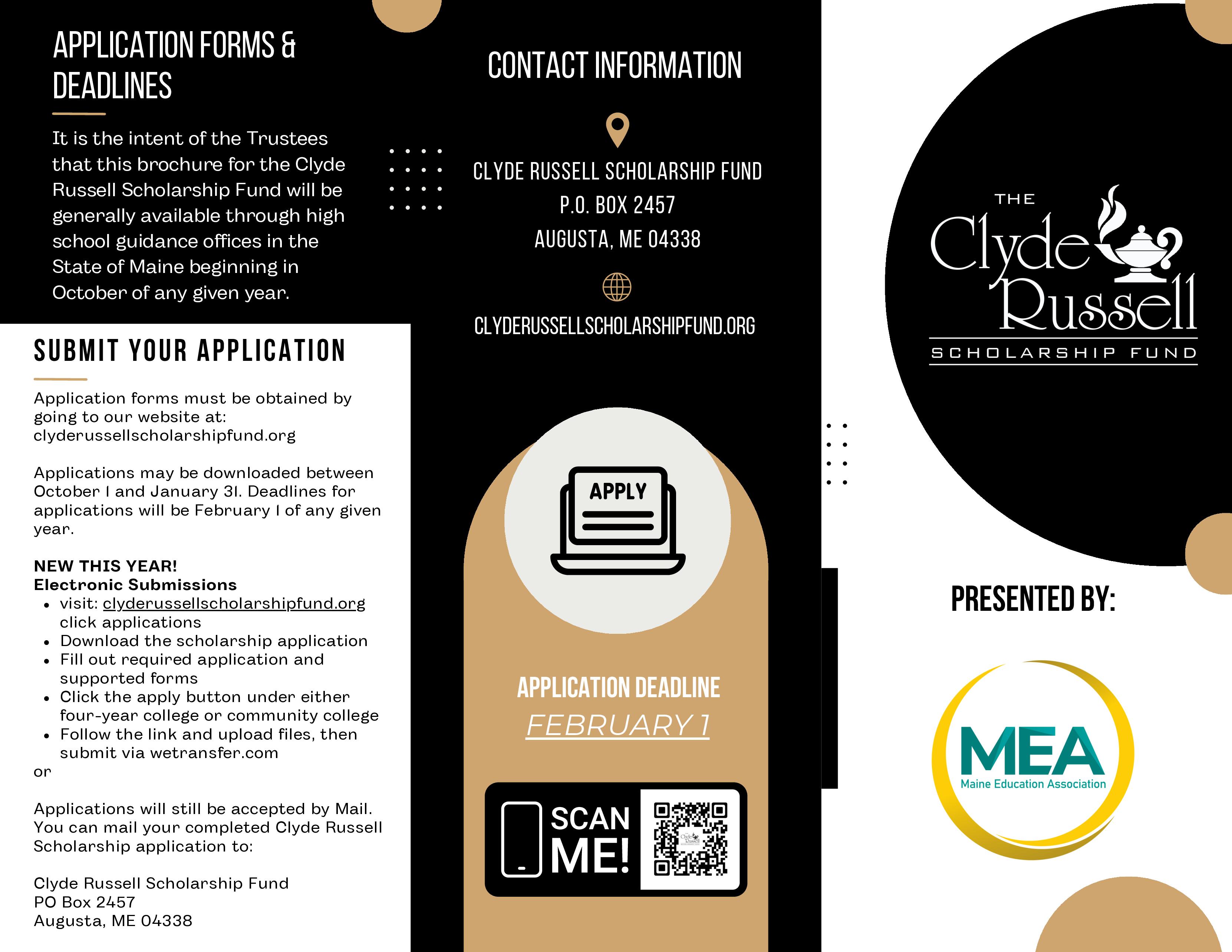
Financial wellness, one of the biggest challenges for employees, is defined as, “being confident in your financial situation, able to withstand unexpected expenses and enjoy a financially secure future.”1
Employees have many financial needs — meeting everyday expenses, paying off debt, saving for emergencies, paying for healthcare and saving for retirement — but there’s only so much money to go around.
A well-crafted financial wellness program may be the answer No matter where your employees are in their jour ney, Horace Mann will be with them every step of the way Contact your local Horace Mann represenative today to learn more!
Horace Mann has been helping your employees w ith financial wellness since 1945
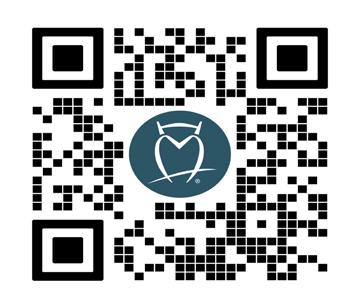
Samantha Burdick
As I was putting the finishing touches on this issue of Maine Educator, I was reminded of a photo of my mother and me at her college graduation. When I was four years old, my mom graduated with her associate degree from Kennebec Valley Technical College, now Kennebec Valley Community College (KVCC).
Stepping onto the campus of KVCC to interview faculty members for “The Adaptability of Community College Faculty” (page 16), I started thinking about the community college educators who impacted my mom’s life and, as a result, mine. These educators not only provided her with the knowledge and skills she needed to succeed but also instilled a sense of confidence and determination that she passed on to me. I spent many hours during my childhood playing basketball in the gymnasium of Carter Hall on the KVCC campus because in addition to my mom being an alumna of the college, my grandfather worked there throughout my childhood until his retirement.
We have so much to be proud of here in Maine, with countless dedicated educators committed to changing our communities for the better. We have educators like Kaley Brown (SAD 54 EA) mentoring students as they bring awareness to their peers about mental health issues. Read more about that in “Your Mind Matters” (page 20). We have amazing schools like Caribou Community School, where educators are dedicated to fostering a passion for reading. Find out how they are doing that on page 27. We can also be thankful for the solidarity of our colleagues. Learn more about how a few ESP bargaining units organized for big wins this fall on page 24.
I ended the year reading I Am Malala by Malala Yousafzai, a book that I used to teach but hadn’t revisited in years. This powerful memoir recounts Malala’s courageous fight for girls’ education in Pakistan and her survival after being targeted by the Taliban. With the recent chatter about dismantling the Department of Education, I found myself seeking inspiration and a reminder of why our work as educators is so vital. In the book, Malala recounts a well-known speech she gave at the United Nations where she declared, “One child, one teacher, one book, and one pen can change the world.”
Inspired by her words, I wrote that quote on a post-it and hung it next to my desk as a reminder that the work we do as educators every day is powerful and important. Educators like you are making a difference in the lives of your students, your schools, and your communities. Your dedication and hard work do not go unnoticed, and they have a ripple effect that extends far beyond the classroom.
As we enter the new year, I want to express my gratitude for all that you do. Happy New Year from my desk to yours, THANK YOU for your commitment to education and for the positive impact you make every day.

Samantha Burdick Director of Communications & Editor editor@maineea.org

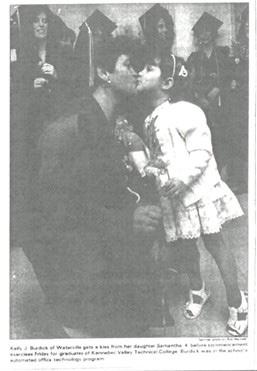

One child, one teacher, one book, and one pen can change the world.









The Graduate Programs in Education at UMF Flexible. Affordable. Connected. Responsive. Offering Premier Master’s Programs in: Counseling Psychology - Creative Arts Early Childhood Education Leadership Mathematics Education Special Education Teaching matters. Keep learning at farmington.edu/grad-studies/ .
